|
Herb Hein, a Speech-Language Pathologist with over 40 years of experience working with clients of all ages, presents this informative webinar to guide parents how to teach the use of respectful, empathetic and cooperative language in the home setting. Some of the key concepts and strategies you can watch Herb present in this "My Special Needs Connection Webinar" include:
1 Comment
We were grateful to have the opportunity to provide this presentation for the San Diego Brain Injury Foundation Speaker Series. A Zoom recording of our talk and PowerPoint for "Practical Cognitive Strategies for Brain Injury Survivors" is available on YouTube at the link below.
The PDF of the handout for our webinar is available through the other link noted below. We hope the information is useful for you!- Herb & Joanne A key concept of my Growing G.R.E.E.N. InterActions Social Literacy Program is that we have the human power to Think First, reaching for thoughts that can guide us to make our best action choices for ourselves and those with whom we live, learn, play and work: our Teams. By being guided to use these Guiding G.R.E.E.N. Thoughts® to choose our best prosocial words and actions, we get to experience positive feelings from interacting calmly, respectfully and cooperatively with others. The positive reinforcement and positive consequences we get from acting in this positive way makes it more likely that we will act this way the next time the situation arises. This is a cognitive behavioral therapy approach in that our newly practiced positive thoughts allow for creating positive feelings, which can result in our displaying positive behavior. We can be guided to think positive thoughts and practice acting in related positive ways, leading to more positive G.R.E.E.N. interactions. I have been encouraging others to read and use the 36 Guiding G.R.E.E.N. Thoughts that are in the Box of Guiding G.R.E.E.N. Thoughts. These thoughts are discussed and practiced in the scripts within various chapters of the InterActive Lesson Book. I have also encouraged participants to write down their own guiding thoughts that are specific to their own Teams and situations. I encourage anyone to use these guiding thoughts because I find that they have worked to improve the lives of my clients and my own life as well.
I started working with Annette Rodriguez as she was starting the Transition Program in the Grossmont High School District. We worked on her being better able to focus on those around her so she could work with them as a productive member of a team, whether that was the Home Team with her mother and siblings, her Classroom Team, or any of her Work Teams in which she was involved for developing appropriate social and on-task behaviors. Over the years working with Annette in that program, it was a pleasure working with her, watching her successfully develop her ability to be aware of what is happening around her, instead of being internally distracted. She coined the terms of using her “outside magic” to see what is happening around her, instead of focusing only on her “inside magic”, resulting in her needing constant cues to pay attention to others around her.
Presently, Annette has been spending her time during this pandemic period living with her father in Tijuana. I have had the opportunity to continue working with her through Zoom sessions to keep up her skills in working as a productive Home Team member with her father AND to help her engage in her own productive activity that shows off her unique talents as a storyteller and artist. Marita Morones, M.A., a teacher at Mt. Helix Academy in La Mesa, California, shared this picture of the Growing G.R.E.E.N. InterActions reinforcement tree that she has put in her classroom this year. Marita used lessons and strategies from the Growing G.R.E.E.N. InterActions Social Literacy Program with her class last year and has done a beautiful job of setting up one of its reinforcement components in her classroom again.
I put up the Growing G.R.E.E.N. tree at the beginning of this school year because I want to create a G.R.E.E.N. atmosphere in my classroom (i.e., grateful, respectful, empathetic, easy going, navigating). The tree is a constant reminder of what is valued in the classroom. I refer to the tree throughout the week. Together the kids and I marvel at how the tree is growing. When I dispense a leaf, it is usually a public statement as to why the child is receiving a leaf (e.g., Wow! "Johnny" just stated he needed help and "Suzy" stopped her free time activity to help him! Cool. That's what I call being a friend!). --Marita Morones, M.A. In my experiences working in a variety of schools, I met students who acted like they lived on their own islands, not aware or not caring how their behavior affected anyone around them. To achieve my goal of doing what I could to help these individuals be more aware of others around them, and care how their positive or negative actions affected them, I developed the Growing G.R.E.E.N. InterActions Social Literacy Program. I developed hands-on motivating materials and visual strategies (Wise Action Tools) as well as an instructor’s manual (The Guide’s Guide) and a book of lessons, worksheets, and role-playing activities to help students learn to Think First before interacting. Students experience the positive consequences of interacting in Grateful, Respectful, Empathetic, Easygoing and Navigating (G.R.E.E.N.) ways with others on their Home, Classroom, Friendship and Work Teams. Through presenting the program’s lessons and strategies, I had the extraordinary opportunity to witness individuals transforming from initially acting like they were on their own islands, to displaying the ability to deliberately make choices in their words and actions that not only benefited themselves, but benefited others on their Teams.
In Chapter 2 of my InterActive Lesson Book, titled “What Makes Our Civilization Work?”, I stress the importance of making positive, civilized connections with other people so we all can move forward instead of backward. We do this by acting in thoughtful, helpful, kind and civil ways. 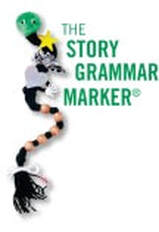 Maryellen Rooney Moreau is well known by many school-based speech-language pathologists for having developed very useful methodology and materials that help students break down narratives into their component parts so they could be understood. With Maryellen’s approaches such as the Story Grammar Marker®, students also effectively learn the language involved in summarizing these narratives. They also learn to develop critical thinking, using tools such as the Critical Thinking Triangle® to gain more awareness about how people are feeling, what they are thinking and what they are planning. In her recent blog, called Maryellen’s Musings, she shared how her own methodologies related to two articles and a program that she found in her research about trauma-informed programs and trauma-sensitive approaches. I was honored to find that my Growing G.R.E.E.N. InterActions Social Literacy Program was the program she found to be useful as a trauma-informed program and a trauma-sensitive approach. Herb, Joanne and Janis, the G.R.E.E.N. Team of Hein SLP Inc., all took the opportunity to introduce the Growing G.R.E.E.N. InterActions Social Literacy Program to speech-language pathologists (SLPs) from all over the country who visited our booth at the Annual Convention in Orlando for the American Speech-Language-Hearing Association. Herb also presented a well-attended seminar called Imagine Making the Best Behavior Choices: Teaching Language, Analysis, and Self-Monitoring Skills for Thoughtful Interactions (#1887). He presented the evidence for the different approaches that are integral to the Growing G.R.E.E.N InterActions Program and then explained these approaches for guiding individuals to be more thoughtful in their interactions. Get the handout to this seminar through the link below.
This past year, I provided weekly treatment with a small group of students in a Transition Class in a San Diego County high school district. These 18-19-year-old students were involved in vocational training and learning independent living skills. I used lessons, strategies and activities from my Growing G.R.E.E.N. InterActions Social Literacy Program to help the class improve their social skills so they could become successful, active participants within their community. I presented explicit instruction so they could understand that their actions affected others around them, the others they could consider being on the same Team with them. The students were guided to generate Common Team Goals and Team Rules collaboratively so they all could feel like they had some "ownership" in the ideas the group chose. With these Team goals and rules spelled out, it would be clear what kind of behavior was expected and what could be achieved if they all worked together, and thought about how well they were interacting.
We were pleased with the mid-summer turn-out at Herb Hein's presentation of strategies he has developed for improving social behavior. Professionals and parents learned about the Growing G.R.E.E.N. InterActions Social Literacy Program and how it gets individuals to use language to guide their thoughts and actions, engage in self-control, methodically analyze social situations, set goals and make positive interaction choices with others on their Teams. Mark Wilson, MOT, OTR/L, and Sharon Criger, DPT of FITS (Functional Integrated Therapeutic Services) and their staff were wonderful hosts, providing refreshments and a comfortable space in one of their OT/PT gyms. The participants appreciated the extensive handout that
|
Meet the AuthorsHerb and Joanne Hein
Categories
All
|
©1980-2017 Hein Speech-Language Pathology, Inc. All rights reserved. Login.

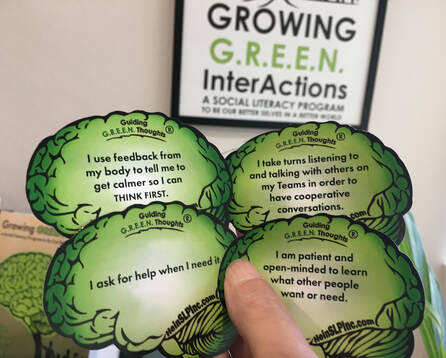
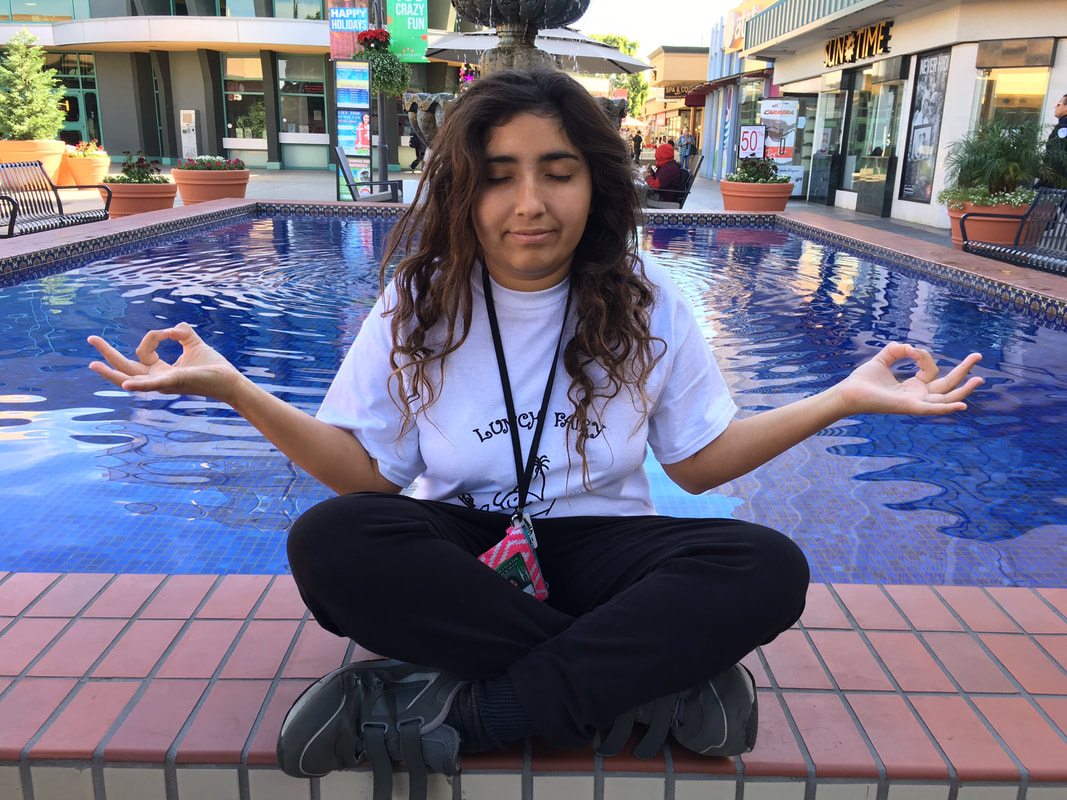
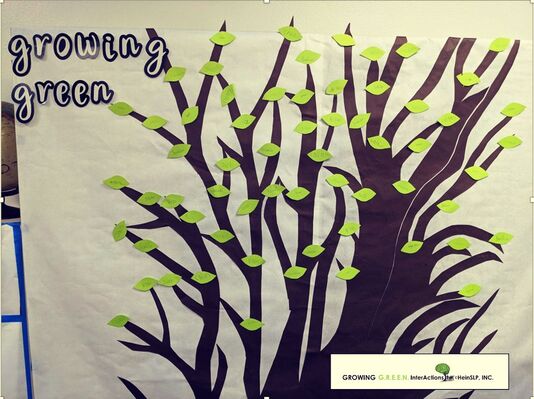

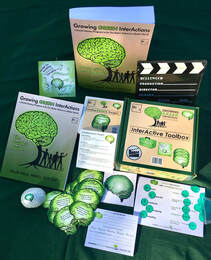
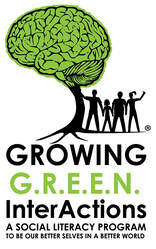
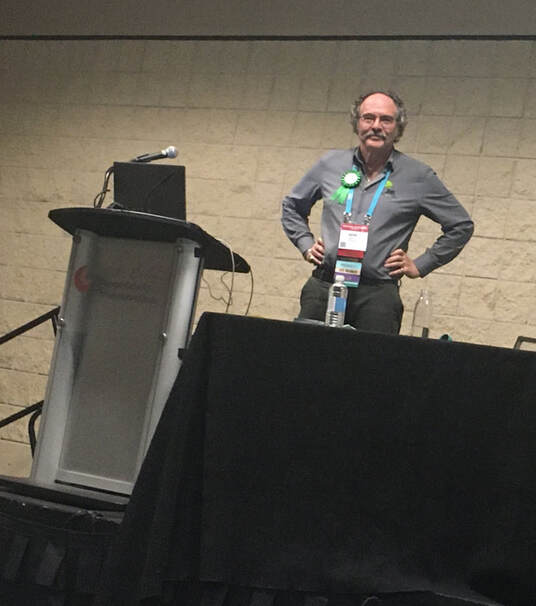
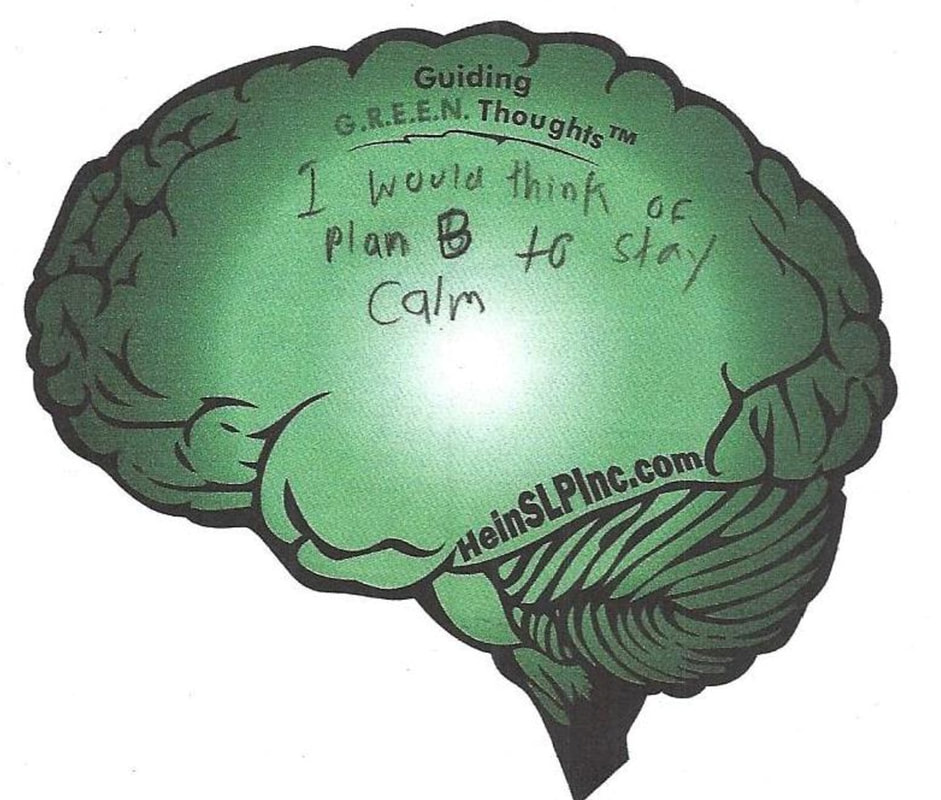
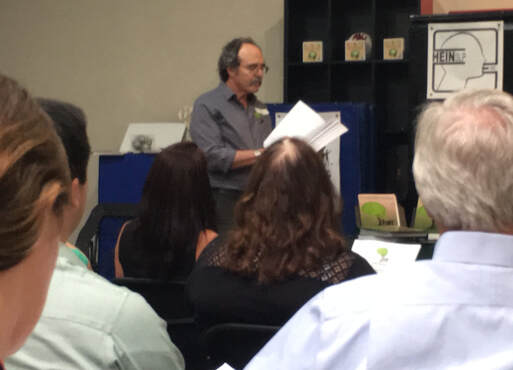
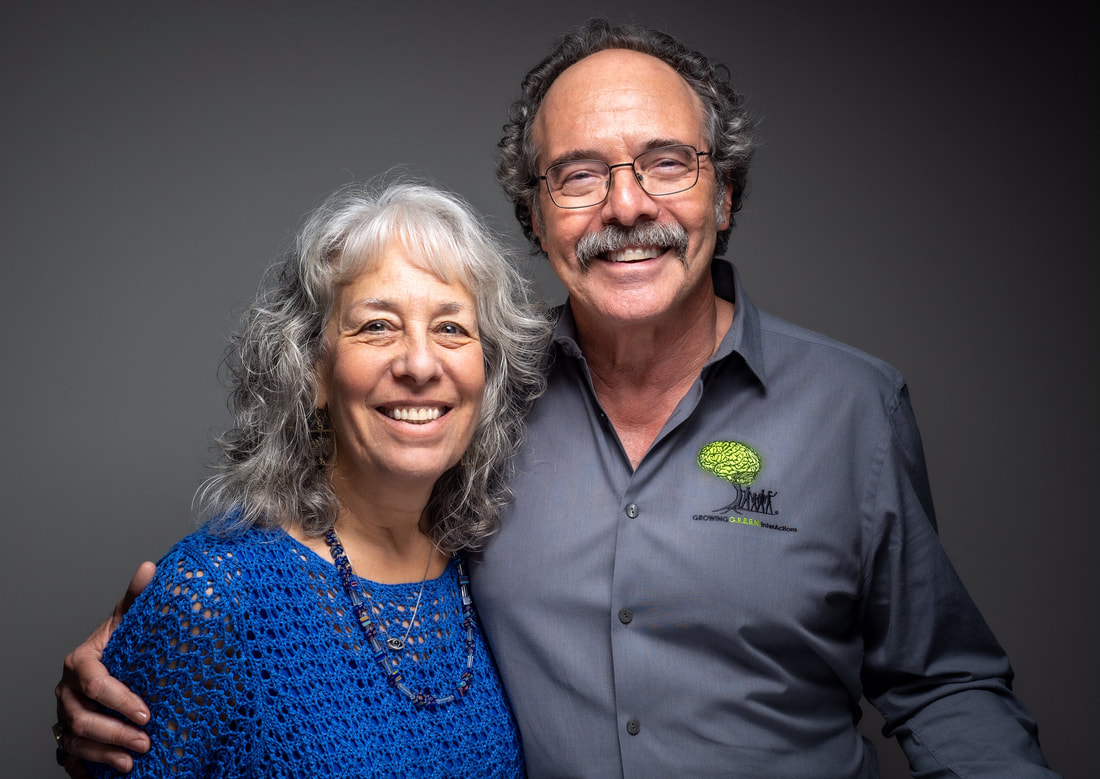
 RSS Feed
RSS Feed